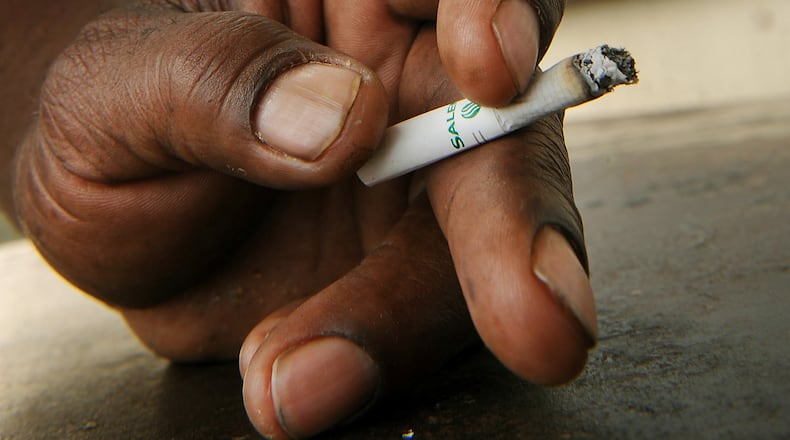Despite its best intentions, a proposal to criminalize menthol cigarettes could end up harming the communities it seeks to protect and hurt the citizens I serve as mayor in the city of South Fulton. South Fulton has made commitments to reduce smoking and mitigate the harms of tobacco to our community. Understanding how smoking and secondhand smoke negatively impacts health, the South Fulton City Council voted unanimously in 2018 to stop the issuing of permits to new cigar bars and hookah lounges.
But unlike our policy, which places prohibitions on tobacco profiteers, a national ban of menthols runs the risk of criminalizing end users, echoing the same mistakes made in America’s war on drugs, which history has revealed to be a war on drug users and their families. These historical failures are etched in the criminal records of millions of Black and Latino families still recovering from over-policing and mass incarceration.
Credit: Contributed
Credit: Contributed
Even at its most benign, a “menthol ban” could increase negative police interactions in Black communities — which are already three times as likely to turn deadly, as documented by the National Institutes of Health.
Many civil rights leaders and organizations have joined in sounding the alarm about a “Drug War 2.0.” In 2022, the City of South Fulton passed a resolution I authored which declares, “The prosecution of any allegation, charge or information relating to the use of menthol products or flavored cigars shall be the lowest priority for enforcement.” But African Americans can’t count on every municipality and its police to be as progressive as ours.
In 2020, Massachusetts became the first state in the nation to ban menthol cigarettes. Since enacting their ban, a robust black market for menthol cigarettes has evolved, documented by its own Multi-Agency Illegal Tobacco Task Force. Its 2023 annual report recommends expanding felony charges to individuals for “possession with intent to sell” menthol cigarettes.
It is not unreasonable to believe that once a federal menthol ban goes into effect, a person arrested for a menthol cigarette-related crime could face not only prosecution for that crime, but trigger prosecutions of three-strikes or other repeat offender laws. Let’s not promulgate policies from a story we all know ends in tragedy for communities of color. By concentrating on proven effective interventions that reduce youth tobacco and menthol consumption, we can safeguard community health without perpetuating injustice.
We could fund such policies with reparations from tobacco companies to the communities they targeted with their menthol marketing. It has been well-documented that tobacco companies intentionally advertised menthol cigarettes — the most toxic of their offerings — to Black and brown communities. As a result, 81% of Black smokers use menthol products, according to the Centers for Disease Control and Prevention.
I implore President Joe Biden to reconsider the criminalization of menthol cigarettes and work instead on less harmful approaches. Rather than even a possibility of punitive systems from which too many Black families are still recovering, we can birth new public health policies that promote health and preserve justice for all.
Khalid Kamau is mayor of South Fulton.
About the Author
Keep Reading
The Latest
Featured



